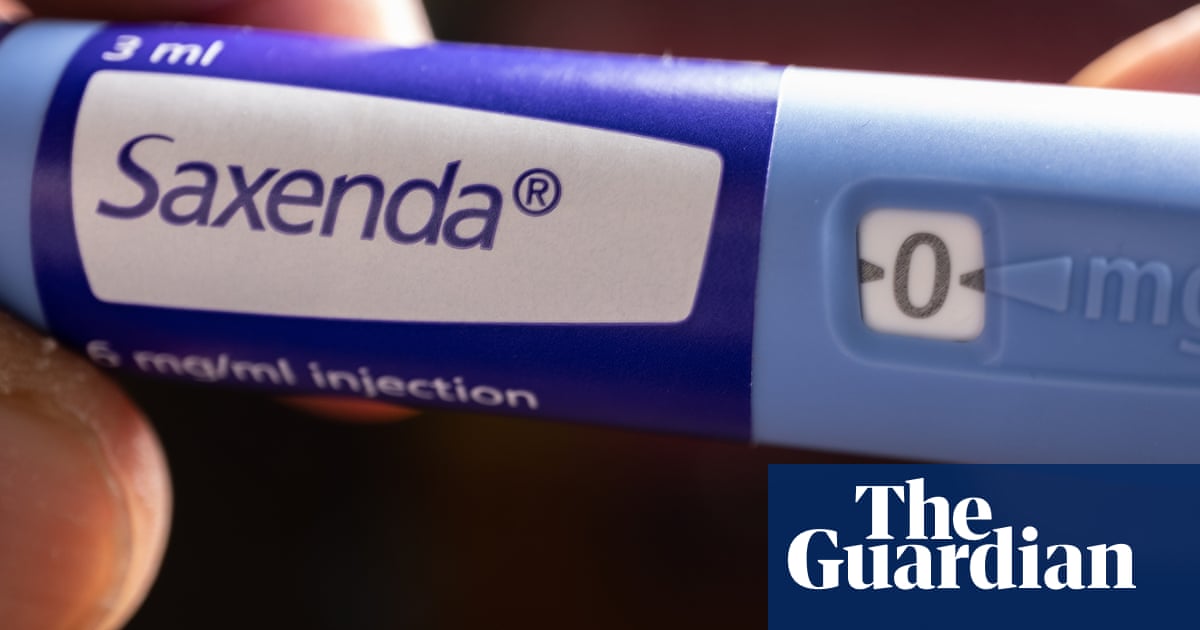Giving obese children weight loss jabs works and could help avoid arguments over mealtimes, according to research.
Clinicians treating very obese children at a hospital in Sweden analysed whether liraglutide injections could be used as well as diet and lifestyle changes to increase weight loss.
In real-life analysis of 1,000 children under 16 with severe obesity over a number of years, about a quarter of patients in 2023 were given the weight loss drug liraglutide in addition to receiving intensive health behaviour and lifestyle treatment at the National ChildhoodObesityCentre in Stockholm.
The clinicians found that nearly a third of these children dropped enough weight to improve their health, compared with about 27% in earlier treated groups with no access to the drugs.
Patients starting the programme in 2024 have been given semaglutide but results from these children are not yet available.
Semaglutide, better known as Wegovy, and liraglutide, sold as Saxenda, are both GLP-1 receptor agonists, which help curb appetite. In the UK they are available on the NHS only for adults with a BMI above 35 with a weight-related condition, although in certain circumstances specialist paediatric clinics can prescribe them.
Dr Annika Janson, of Karolinska university hospital in Sweden, the lead author of the study, whose findings were presented at the European Congress on Obesity, said the beneficial impact of weight loss jabs on children’s weight could accelerate in future years.
“Only a fraction of the children had GLP-1 drugs and most of those who did started on them six to 12 months into the treatment programme. Longer-term treatment may lead to greater improvements in BMI,” she said.
In addition to helping to curb hunger, families reported reduced conflicts around food and improved capacity for other lifestyle adaptations.
“It was . Portions could be downsized. For some children, not being hungry all the time is a new feeling,” Janson said. “GLP-1 receptor agonists are clearly beneficial to many children with severe obesity and, while they won’t help in all cases, more children should have access to these important medications.”
NHS England has announced it is rolling out “smart scales” that monitor children’s weight remotely in an attempt to “nudge” behaviour towards healthier eating habits.
About 350 families are already using the technology in 15specialist paediatric weight management clinics. NHS England said on Monday it would deploy the scales to a further four clinics in the summer.
The digital weighing scales connect to an app and have “hidden digits” so families don’t see the specific weight. The data is automatically transferred to the patient’s clinical team, who send the family overall weight trends and supportive messages, which experts said could be more encouraging for young people.
Prof Simon Kenny, NHS England’s national clinical director for children and young people, said: “This gamechanging tool is helping our specialists support and keep track of children’s weight loss progress without them needing to leave home, while offering regular advice to them and their parents to help build healthy habits.”
Tam Fry, of the National Obesity Forum, said: “I think there is a worry that some people will think this is nanny state or Big Brother but I think actually people are so confused about weight and BMI, especially when it comes to children, that I think this might be a better way to go.
“We have to find ways to help families to change their habits, and if it’s about nudge and going a bit softly but keeping people under close surveillance, that may be the way to do it.”
